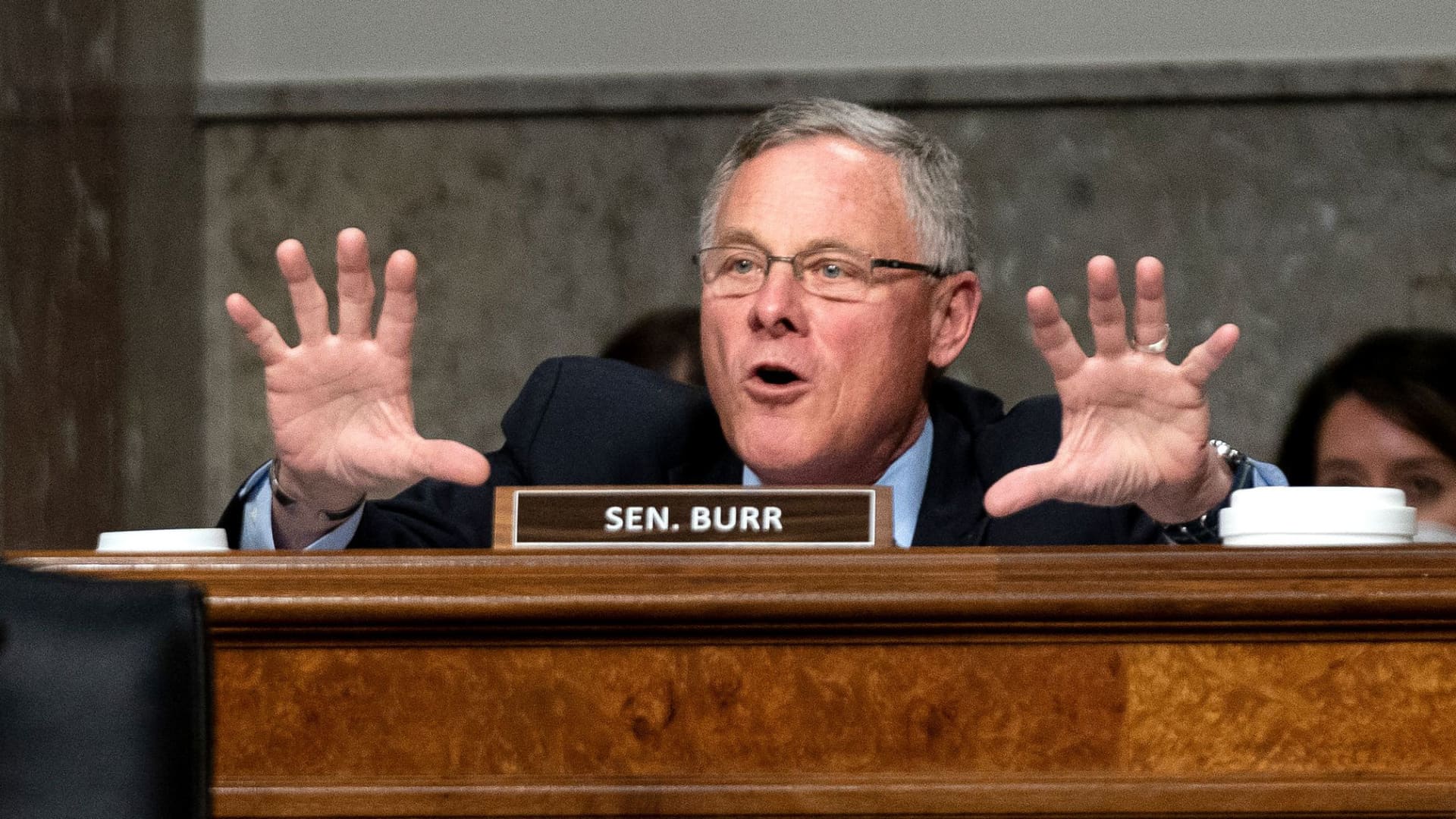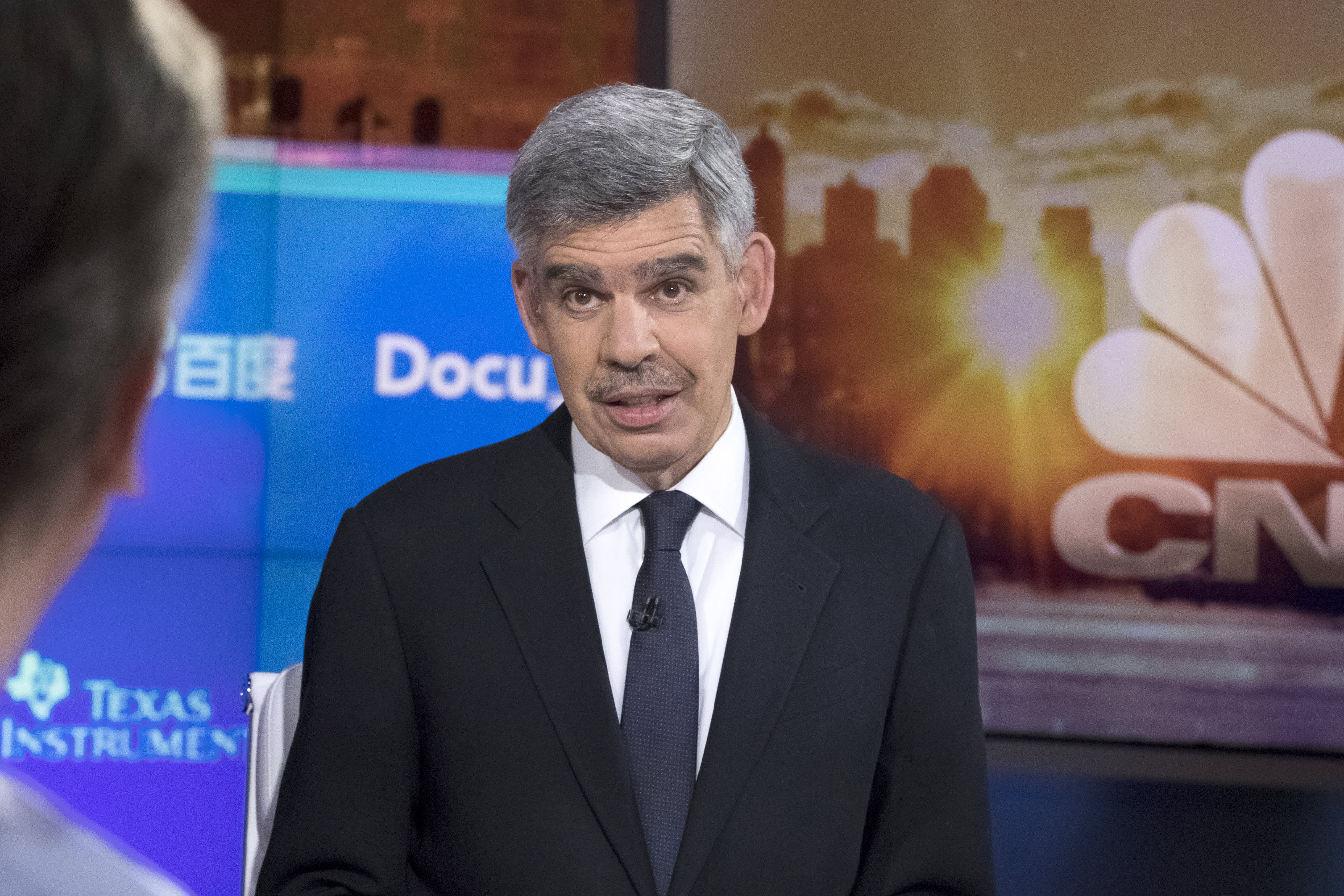WASHINGTON — Newly unsealed FBI documents paint a vivid picture of the government’s evidence in a 2020 insider trading investigation of North Carolina’s senior senator, Republican Richard Burr.
Burr was ultimately not charged with breaking any laws. But the newly released sworn affidavit of an FBI special agent shows that the Justice Department had probable cause to believe that Burr had committed insider trading and securities fraud.
related investing news
As chair of the Senate Intelligence Committee, Burr in February 2020 abruptly liquidated more than half of his and his wife’s equity holdings at a time when U.S. markets and most Americans did not yet know how bad the coronavirus pandemic was going to be.
Given his position, Burr had information about the virus’ spread, and about America’s meager preparation for a massive pandemic, that was not available to the public.
The affidavit was submitted in support of a search warrant application to seize and search Burr’s phone, one that the judge in the case later granted.
It lays out a startling timeline of calls and texts between Burr, his wife Brooke Burr, her brother Gerald Fauth and Fauth’s wife that took place on the same days that both the Fauths and the Burrs sold off hundreds of thousands of dollars of stock, right before the market plunged.
A spokesperson in Burr’s Senate office did not respond to a request for comment on the newly unsealed documents.
An unusual timeline
From the start, Burr has insisted that the only information he relied upon in deciding to sell his stocks was publicly available, including reports by CNBC correspondents in Asia.
Nonetheless, as chair of the Senate Intelligence Committee, Burr was given access to classified intelligence reports in January and early February that contained dire warnings about the coronavirus.
On Jan. 31, Burr received nonpublic information from a source whose name is redacted in the FBI documents. That same day, Burr put in orders to sell nearly $110,000 in stock from his and his wife’s brokerage accounts.
On Feb. 12, Burr ordered the purchase of approximately $1.2 million of Treasury securities, using 76% of the total holdings in Burr and his wife’s joint account.
“Investors often purchase U.S. Treasury funds to hedge against a potential market downturn,” the FBI special agent, Brandon Merriman, notes.
He also noted that the Dow Jones Industrial Average closed at a record high of 29,551.42 on Feb. 12.
One day after Burr’s big Treasury bill purchase, Burr and his wife unloaded equity shares worth approximately $1.1 million.
That the Burrs sold stock was reported at the time, but the value of the sale was only reported within a range. Monday’s filing was the first time the exact amounts had been made public.
According to the FBI, “As a result of Senator Burr’s sales on February 13, 2020, his portfolio went from approximately 83% in equities to approximately 3% in equities.”
A week later, markets began a steep slide as investors panicked over the potential economic damage from the coronavirus.
Gerald Fauth
The other person in Burr’s family who sold a lot of stock on Feb. 13, 2020 was Burr’s brother-in-law, Gerald Fauth.
According to the affidavit, records show that a series of sell orders were placed into an account belonging to Fauth’s wife, Mary Fauth, just before noon on the 13th, amounting to around $159,100.
Burr’s attorney, Alice Fisher, told ProPublica in May of 2020 that Burr “did not coordinate his decision to trade on Feb. 13 with Mr. Fauth.”
But the FBI evidence released on Monday shows that Burr’s wife called her brother shortly after 11 a.m. ET on the 13th, and they spoke for two minutes.
Twenty minutes after that, Burr also used his cellphone to call Fauth, according to records obtained by the Justice Department.
Just two minutes after Fauth’s conversation with his brother-law ended, Fauth called his investment manager and they talked for just shy of half an hour. In a later interview, the adviser appears to have told the FBI that Fauth sounded hurried and that he mentioned knowing a senator in Washington.
According to the FBI, the Burrs’ stock sell orders were put in between 11:38 and 11:49 a.m.
Fauth’s orders were put in between 11:55 a.m. and 11:58 a.m.
Mysterious text messages
While the FBI affidavit sheds light on many of the questions surrounding Burr’s stock sales, it closely protects at least one relevant piece of information: what kind of nonpublic information Burr had about the coronavirus and where he got it.
But there may be some clues: Specifically, the Justice Department mentions dozens of text messages that Burr exchanged with someone whose name is redacted, but who appears to be a potential source of nonpublic information.
According to the FBI, between Jan. 31, 2020, and April 7, 2020, this person and Burr “exchanged approximately 32 text messages, nearly all of which concerned, in one way or another, the COVID-19 pandemic.”
Nearly everything about the text messages is redacted, but later in the affidavit, the government writes, “those text messages include those discussed above, and included ones regarding other issues, such as efforts to provide face masks to the public, the ‘global outlook’ regarding COVID-19, and a proposed ‘national lockdown.'”
If Burr was receiving this information when it wasn’t being publicly discussed, that could have strengthened the government’s case against him.
It’s still unclear why the Justice Department decided not to prosecute Burr or Fauth, and the department does not typically explain the reasons why it does not prosecute someone.
But on Jan. 19, 2021, nearly a year after the questionable trades, Burr said in a statement, “Tonight, the Department of Justice informed me that it has concluded its review of my personal financial transactions conducted early last year.
“The case is now closed. I’m glad to hear it,” Burr said. “My focus has been and will continue to be working for the people of North Carolina during this difficult time for our nation.”

